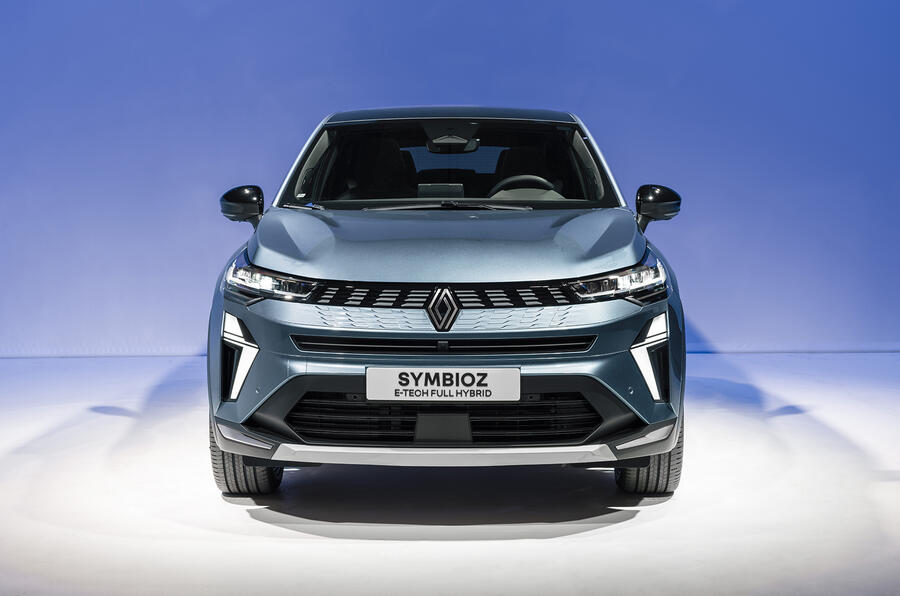The new Renault Symbioz completes the expansion of the brand’s line-up in the crucial SUV C-segment and is designed to evoke the spirit of the 1960s 16 saloon and the 1980s Espace by focusing on practicality.
The new hybrid will sit between the smaller Captur – alongside which it was developed – and larger Austral in the French firm’s combustion-engined car line-up, making it a direct rival to the Nissan Qashqai.
It’s purposefully practical in design terms, in contrast with Renault’s electric cars. And while the French firm has revived classic names such as the Megane, 5, 4 and Twingo for future EVs, the Symbioz name is new to the range. It has only previously been used on a 2017 electric concept that was focused on autonomous driving.
Paula Fabregat, Renault’s small car design chief, called the Symbioz as “more rational and less emotional” than the firm’s new EVs, adding: “The 5 [supermini] is an amazing object; this is an amazing answer.”
She added the focus to develop a car that was “a very good answer for a lot of families” helped determine the boxy shape of the Symbioz, although she added that it was “a sexy box”.

While the machine was imagined as a family car, Renault will also target fleet buyers due to its efficient hybrid powertrain, and it anticipates the business market could account for 40% of UK sales.
The Symbioz sits on the same CMF-B platform that’s used by ICE Renaults such as the Clio supermini and Arkana coupé-SUV. It was developed alongside the Captur, but is intended to fill a different market gap.
The Symbioz is 4413mm long, 1797mm wide and 1575mm high. For comparison the Captur is 4227mm long, while the larger Austral measures 4510mm. The Symbioz is broadly an equivalent to the electric Scenic, which measures 4470mm.
The shared development with the Captur can be seen from the near-identical front design, the only difference being the pattern worked into the grille. As with other new Renault models, many of the design details reflect the diagonal shape of Renault’s logo.